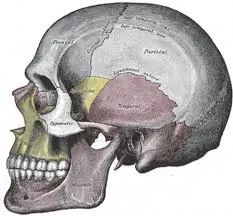
Classic concussion is defined as a brief and reversible coma occurring at the time of a trauma to the head. This type of concussion is always accompanied by some degree of retrograde and post-traumatic amnesia (anterograde amnesia). Neurological changes, such as slowed heart rate (bradycardia), dilated pupils, and sometimes even brief seizure-like episodes, are also associated with it. By definition, classic concussion always implies a transient loss of, or very signifi cant alteration of, consciousness and awareness.
What Is Postconcussion Syndrome?
Postconcussion syndrome (PCS) may be defined as that injury caused by trauma to the head, accompanied by a transient loss of consciousness (less than 20 minutes) and/or a significant degree of mental confusion, that has an initial Glasgow Coma Scale (GCS) score of 13 to 15. (A GCS score of 13 to 15 is “minor,” 9 to 12 is “moderate,” 3 to 8 is “severe.”) However, postconcussion syndrome also may follow injuries in which the victim had only a recollection of being stunned or of having sustained a brief period of confusion. The duration of post-traumatic confusion (PTC), like post-traumatic amnesia (PTA), is an important prog nostic indicator. When PTA or PTC is brief, symptoms should persist for a comparatively short duration. If the symptoms persist, factors extraneous to the original trauma sustained in the accident might be suspected. PCS is a syndrome of variable clinical presentation, but it has a characteristic set of cognitive and emotional changes, prominent among which are headache, dizziness, inability to attend and concentrate, and memory deficits. Depression and anxiety are commonly seen as comparatively long-range sequalae.
The syndrome may present in a variety of ways, depending upon the nature of the individual ‘s manner of description, his “cognitive style.” Some phlegmatic and stoic persons may minimize the extent of their disability; more demonstrative and emotionally labile patients may describe their symptoms with flamboyance and show great distress. The more articulate individual may offer a lucid and coherent description of his problems, while the less fluent character may find it difficult to express the quality of his suffering. The latter patient may more properly be questioned using a checklist questionnaire directed to him verbally.
I’m Ed Smith, a Sacramento personal injury attorney with the primary accident information site on the web, AutoAccident.com.
If you or a loved one has suffered a serious injury, call me now at 916.921.6400.
You can find out more about our office by looking for us either on Yelp or on Avvo, the attorney rating site.
